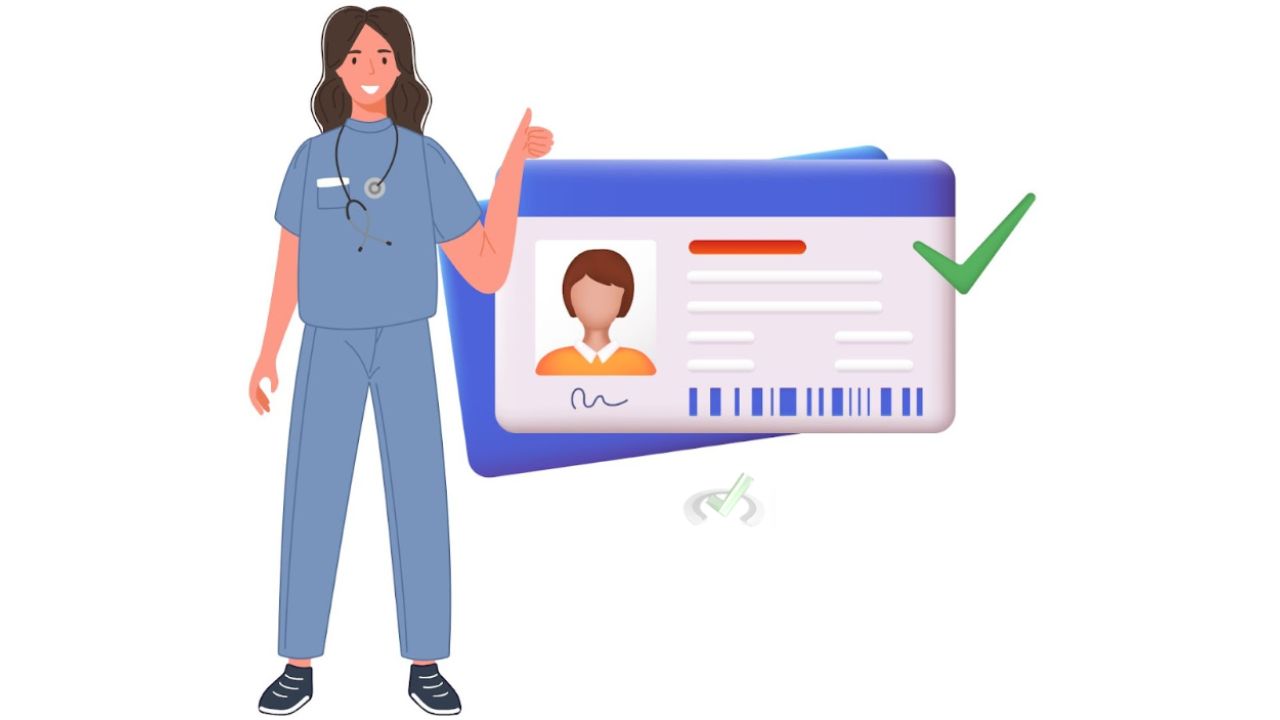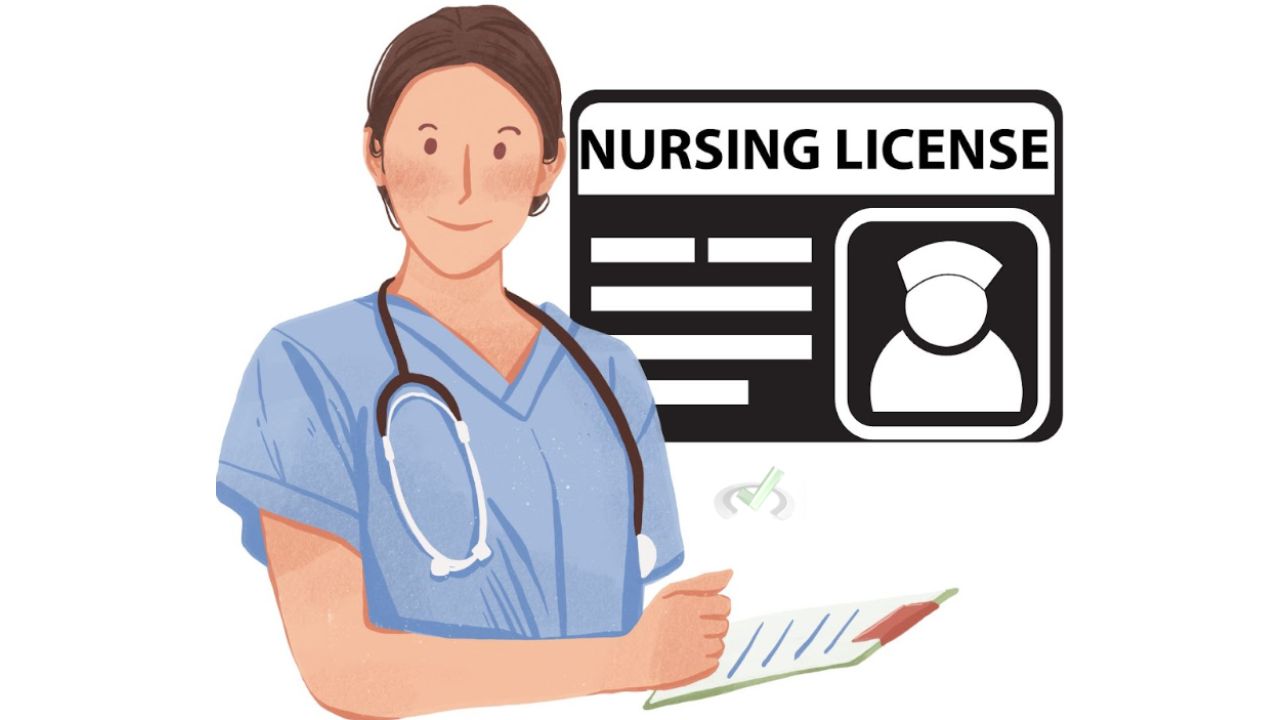
You did it. You passed the NCLEX. The hours of study, the practice questions, the nerves—it all paid off. But instead of breathing easy, a new question takes over: how long does it take to get nursing license after passing NCLEX?
The short answer? It depends. Some nurses get their license in a few days. Others wait months. The process moves quickly in some states and drags in others. Background checks, paperwork, and even the time of year can impact when that license finally appears.
If you’re itching to start your career, waiting for paperwork to catch up can feel frustrating. But understanding the process, potential delays, and ways to speed things up can help you plan. Let’s break it all down.
What Happens After You Pass the NCLEX?
Passing the NCLEX doesn’t mean you instantly become a registered nurse. The exam is only one part of the process. The nursing board still needs to check a few things before issuing a license.
Here’s what happens after you pass:
This process can take days or weeks, depending on the efficiency of your state’s nursing board.
How Long Does It Take to Get Nursing License After Passing NCLEX?
Most nurses receive their license within two to six weeks, but the exact timeline depends on where you applied. Some states process applications quickly, while others have a backlog.
States With the Fastest Nursing License Processing
Some states move fast, issuing licenses within days or a couple of weeks.
States With Longer Licensing Wait Times
If you applied in a state known for slow processing, you may have to wait longer than expected.

What Can Delay Your Nursing License?
Several factors can slow down the licensing process. Some delays are unavoidable, but knowing the common reasons can help you stay ahead.
1. Incomplete Application
If your application is missing information, the board won’t process it. Double-check everything before submitting. Common mistakes include:
2. Background Check Delays
A clean background check speeds up the process. Issues arise if:
3. Name Discrepancies
Your name must match across all documents. If your transcript lists one name and your application another, the board may pause processing until the issue is resolved.
4. High Application Volume
Certain times of the year—especially May and December—see an influx of nursing graduates applying for licenses. More applications mean longer wait times.
5. Additional Verification Requests
If the board requires additional verification, such as a document from your nursing school, any delay from that institution will hold up your license.
How to Speed Up the Licensing Process
Waiting for your license can feel like forever, but there are ways to help move things along.
1. Submit Everything Correctly the First Time
Before submitting your application, go through a checklist:
Avoiding mistakes from the start can prevent weeks of unnecessary delays.
2. Complete Fingerprinting Early
Some states allow you to complete fingerprinting before taking the NCLEX. If yours does, get it done early to save time.
3. Track Your Application Status
Many state boards provide an online portal where you can check the status of your application. Log in regularly to ensure everything is moving along.
4. Request License Verification Early
If your state requires verification from another licensing body, request it as soon as possible. Some verifications take weeks to process.
5. Look Into Temporary Permits
Some states offer temporary permits, allowing you to start working while your full license is being processed. These typically last 60-90 days.
What About Compact Nursing Licenses?
If you applied for a Nurse Licensure Compact (NLC) license, processing may be faster.
For an updated list of NLC states, check the National Council of State Boards of Nursing (NCSBN) website.

What If You Need to Start Working Immediately?
If your employer expects you to start work soon but your license hasn’t arrived, you still have options.
Most employers understand that licensing delays happen. If they know you passed the NCLEX and submitted your paperwork, they may allow you to start with limited responsibilities.
How to Prepare for the NCLEX to Avoid Delays in Licensing
Getting your nursing license quickly doesn’t start after passing the NCLEX-RN or NCLEX PN—it starts before you even sit for the exam. Proper preparation ensures that you pass on the first attempt and submit all required documents without mistakes.
How long does it take to get nursing license after passing NCLEX? The answer depends not just on state processing times but also on how well you plan ahead.1. Register Early and Complete All Paperwork in Advance
Many new grads focus so much on NCLEX prep that they forget about licensing paperwork. Each state has its own process, and failing to submit required documents early can delay licensing even if you pass the NCLEX on the first try.
By getting everything in order ahead of time, you reduce the risk of delays once you’ve passed the exam.
2. Study With a Plan to Pass the NCLEX on Your First Attempt
Passing on the first attempt helps you avoid additional waiting periods. If you fail the exam, most states require a 45- to 90-day waiting period before you can retake it. That means your licensing process stops until you pass.
Tips for structured NCLEX prep:
A single failed attempt can set back your license by months, so take preparation seriously. The fastest way to get your nursing license? Passing the NCLEX on your first try.
Stay on track with our NCLEX Daily Dose Emails—a daily boost of expert tips, a practice question, and smart strategies to keep you sharp. Whether you're still studying or waiting for your results, these bite-sized lessons will keep your nursing mindset strong. Subscribe now and make sure you're always one step ahead.Best NCLEX Test-Taking Strategies for a Faster Path to Licensing
Even well-prepared students can struggle with NCLEX test day stress. A solid strategy ensures that you answer confidently and efficiently, reducing the risk of failure and delayed licensing.
1. Master the NCLEX Question Format
The NCLEX-RN and NCLEX-PN are different from regular nursing school exams. Questions use a computer-adaptive format, meaning that as you answer, the test adjusts based on your performance. The better you do, the harder the questions become.
Understanding how the NCLEX adapts helps you stay calm and confident.
2. Use the Elimination Method
Many NCLEX questions include multiple possible answers that seem correct. To increase your chances of choosing the right one:
Applying logical elimination techniques keeps you from second-guessing yourself.
3. Manage Time Without Rushing
Unlike other exams, the NCLEX has no penalty for running out of time—but you should still pace yourself.
A strong test strategy leads to a higher chance of passing on the first attempt, which means a faster licensing process. Don't waste time second-guessing what to study. Get our NCLEX Cheatsheets—a quick and easy reference guide to question types, test strategies, and scoring insights. Whether you're preparing for test day or mapping out a retake plan, these cheatsheets will keep you focused on what matters most.

Final Thoughts on How Long Does It Take to Get Nursing License After Passing NCLEX
The time it takes to get your nursing license depends on the state, the efficiency of the nursing board, and whether any issues arise during processing.
For most nurses, the wait lasts two to six weeks, but some states take longer.
To get your license as quickly as possible:
How long does it take to get nursing license after passing NCLEX? The answer depends on where you applied, but taking proactive steps can help ensure you start your nursing career as soon as possible.
